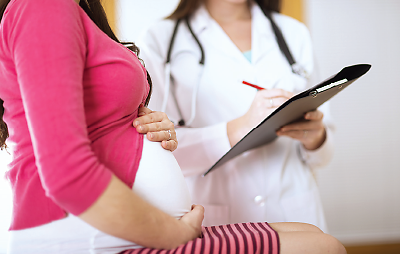Lithium Use in Pregnancy May Contribute to Birth Defects, Miscarriages
Abstract
Choosing the best treatment for expectant mothers with bipolar disorder is not a “one-size-fits-all” situation.
Researchers from the Israel Ministry of Health in Jerusalem and the Motherisk Program at the Hospital for Sick Children in Toronto evaluated the impact of lithium exposure on pregnancy and the likelihood of birth defects in offspring.

The lifetime prevalence of bipolar disorder is approximately 1 percent to 2 percent, which puts women with the disorder at risk for episodes throughout their reproductive years, and increases the risk for congenital abnormalities in offspring associated with maternal use of mood stabilizers during pregnancy, said Orna Diav-Citrin, M.D., lead author and a researcher at the Israel Ministry of Health, in an interview with Psychiatric News.
Since the 1970s, multiple studies have suggested a link between lithium exposure during pregnancy and pathophysiologies that are present at birth, such as Ebstein’s anomaly—a rare heart abnormality characterized by a defective tricuspid valve. “However,” said Diav-Citrin, “studies seeking to confirm this risk and other teratogenic risks of lithium have been inconsistent.”
In the current study, published April 29 in AJP in Advance, Diav-Citrin and colleagues evaluated 183 women with bipolar disorder who were exposed to lithium during pregnancy and 748 pregnant women with bipolar disorder who were not exposed to lithium. Participants were assessed on rates of miscarriage, preterm birth deliveries, and cardiovascular anomalies in their offspring.
Results showed that the lithium-exposed subjects were nearly five times more likely to have a miscarriage or elective termination of pregnancy than their non-lithium-exposed counterparts. In addition, cardiovascular anomalies—assessed by fetal echocardiography—were seven times more likely to occur during the first trimester of pregnancy in women exposed to lithium than those who were not exposed. The rate for preterm delivery was approximately 14 percent in the lithium group, compared with 6 percent in the group without lithium exposure.
The authors emphasized that while outcomes from the current study showed lithium exposure during pregnancy to be associated with higher rates for teratogenic risks—especially for cardiovascular anomalies—than did previous studies, “lithium remains one of the mainstays for therapy of bipolar disorder during pregnancy, since clinical alternative mood stabilizing medications [such as valproic acid and carbamazepine] are confirmed to be human teratogens or have questionable effectiveness [such as lamotrigine] in the context of mania.”
“Treating women with bipolar disorder during pregnancy is a challenge,” said Diav-Citrin, “and decisions should be made on an individual basis.”
Nada Stotland, M.D., a professor of psychiatry at Rush University in Chicago and an expert in OB-GYN issues in psychiatry, agreed.
“It is not a ‘one-size-fits-all’ situation,” Stotland told Psychiatric News. “There are several factors to be considered when treating bipolar disorder in women who are pregnant,” she explained. “If the patient has had a history of full-blown manic or depressive episodes, physicians should really think of the mental health consequences that may arise if that patient is taken off medication. In the case of patients with milder episodes and a strong support system, lessening dosages could be considered in the first trimester.”
Stotland, a former president of APA, emphasized that choosing the best treatment for expectant mothers with bipolar disorder requires much evaluation and that clinicians should “balance the risks of lithium exposure during pregnancy against the risk and consequences of not treating bipolar disorder.” ■
An abstract of “Pregnancy Outcome Following In Utero Exposure to Lithium: A Prospective, Comparative, Observational Study” can be accessed here.



